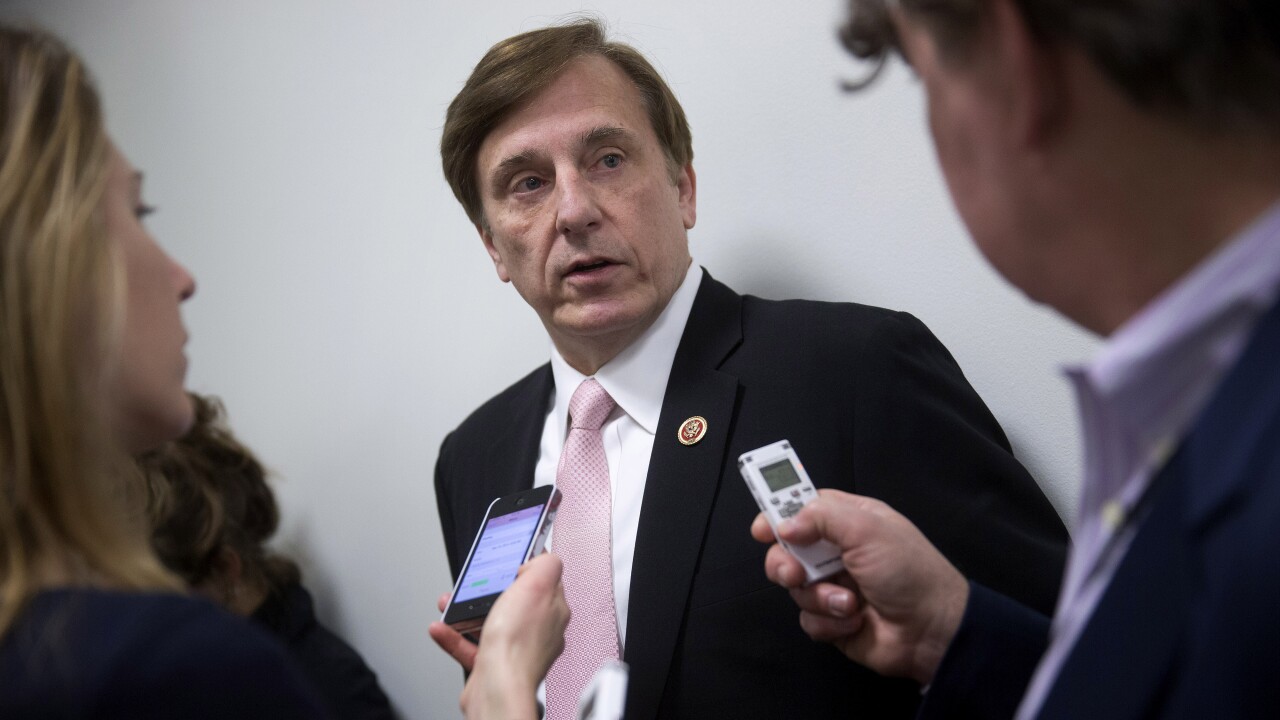WASHINGTON — Local government officials gathered here Wednesday and Thursday to seek support from administration officials, lawmakers, and their staff for tax-exempt financing.
Members of the National League of Cities had meetings scheduled with the staff of the congressional super committee — which is charged with coming up with recommendations by Nov. 23 to reduce the deficit by $.1.5 trillion — as well as with White House officials, including Valerie Jarrett, a senior advisor to President Obama. They hoped to meet with the president.
The NLC took the unusual step of passing a resolution before its annual meeting in Phoenix early next month that “calls on Congress and the president to maintain tax-exempt municipal bonds to promote employment and investment in our nation’s cities and towns,” among other things.
“Tax-exempt municipal bonds have been the cornerstone of financing infrastructure projects for all local governments,” said David Hook, city councilman and chairman of the finance committee for Homewood, Ala.
The lobbying efforts of the municipal officials comes as a task force, a commission, and even Obama have proposed restrictions on tax-exempt bonds.
Last year, a Bipartisan Policy Center debt-reduction task force issued a report that recommended ending the tax exemption for new private-activity bonds by Jan. 1, 2012.
The group was led by Alice Rivlin, a senior fellow at Brookings Institution who helped found the Congressional Budget Office, formerly headed the Office of Management and Budget, and was vice chairwoman of the Federal Reserve Board, as well as former Sen. Pete Domenici, a Republican from New Mexico who headed the Senate Budget Committee.
In November, the president’s National Commission on Fiscal Responsibility and Reform issued a report calling for sweeping tax law changes, including an “illustrative proposal” to do away with tax exemption for new munis.
The $447 million jobs bill that the president floated last month would have been paid for by capping at 28% the value of tax-exempt interest as well as other tax expenditures and deductions.
Senate Democratic leaders introduced a modified version of the bill that abandoned the cap and instead proposed a 5.6% surtax on millionaires, but they were unable to obtain enough votes to push the bill forward.
The president, meanwhile, sent draft legislation to the super committee that had the potential to reduce the value of tax-exempt interest below 28%. That draft would require the OMB to establish steadily declining annual ratios for debt as a percentage of gross domestic product beginning with fiscal 2013.
If the ratios were not met in any given year, automatic cuts in spending and tax preferences, such as tax-exempt interest, would be triggered.
The proposals “would be just devastating and an absolute disaster in terms of economic growth for the country as a whole,” said Hook, who chairs NLC’s finance, administration and intergovernmental relations committee and is also chief of staff to the finance director of Jefferson County, Ala.
“If you shut down infrastructure development for municipal governments and state governments around this country, you basically shut down any opportunity for future growth for every industrial and economic sector,” Hook said, adding that a halt to tax-exempt financing would add 30 to 35 basis points for borrowers.





